
Relationship of Command is the third studio album by American post-hardcore band At the Drive-In, released on September 12, 2000. The album combines an aggressive edge with a melodic drive, harmonious, emotive vocals, and surreal lyrics. While it continues in the alternative style of At the Drive-In's previous albums, Relationship of Command is seen as a more well-rounded album than its predecessors. Initially received positively by critics, the album is now seen not only as one of the most influential post-hardcore albums of the 2000s, but also as one of the most accomplished recent works in the wider rock spectrum. Relationship of Command was voted twelfth out of 100 in the Albums of the Decade by NME, and the 37th most influential album of all time by Kerrang!. It was the band's final album to feature founding guitarist Jim Ward.
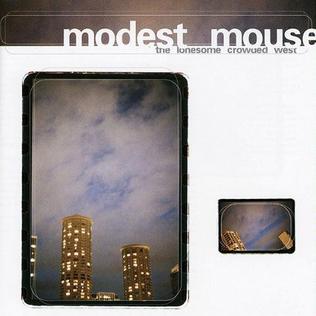
The Lonesome Crowded West is the second studio album by American rock band Modest Mouse, released on November 18, 1997, by Up Records. The two towers pictured on the album's cover are The Westin Seattle.
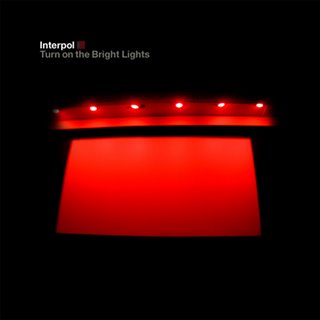
Turn On the Bright Lights is the debut studio album by American rock band Interpol. It was released in the United Kingdom on August 19, 2002, and in the United States the following day, through independent record label Matador Records. The album was recorded in November 2001 at Tarquin Studios in Bridgeport, Connecticut, and was co-produced, mixed and engineered by Peter Katis and Gareth Jones. Its title is taken from a repeated line in the song "NYC".

Arcade Fire is a Canadian indie rock band from Montreal, Quebec, consisting of husband and wife Win Butler and Régine Chassagne, alongside Richard Reed Parry, Tim Kingsbury and Jeremy Gara. The band's current touring line-up also includes former core member Sarah Neufeld and multi-instrumentalists Paul Beaubrun, Dan Boeckner and Eric Heigle. Each of the band's studio albums features contributions from composer and violinist Owen Pallett.

You Forgot It in People is the second studio album by Canadian indie rock band Broken Social Scene, released on October 15, 2002. It was the band's commercial breakthrough. You Forgot It in People features intricate, experimental production techniques and a large number of instruments coinciding with the band's vastly expanded size. Local excitement for the album was so big that initial pressings sold out quickly, causing the need for a 2003 reissue.

Edwin Farnham Butler III is an American-Canadian singer, songwriter, musician, and multi-instrumentalist. He co-founded the Montreal-based indie rock band Arcade Fire with Josh Deu and his wife Régine Chassagne.

Van Lear Rose is the forty-second solo studio album by American country music singer-songwriter Loretta Lynn. It was released on April 27, 2004, by Interscope Records. The album was produced by Jack White. The album was widely praised by critics, peaking at No. 2 on the US Billboard Top Country Albums chart and at No. 24 on the Billboard 200, the most successful crossover album of Lynn's 60-year career at that point. The track "Portland Oregon" was listed as the 305th best song of the 2000s by Pitchfork Media.
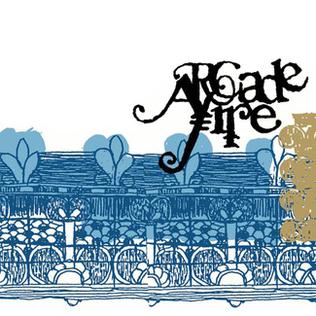
Arcade Fire is an extended play (EP) by the indie rock band Arcade Fire. The EP was recorded in Maine, United States, during the summer of 2002. Arcade Fire was remastered and repackaged for its 2005 re-release by Merge Records for fans after they had "grown obsessed" with the band's debut album, Funeral. It was initially released in 2003 by the band at their shows and website, and then re-released in 2005 by Merge. It received positive reviews from music critics, although some of them noted that it was inferior to their debut album Funeral. Lyrical themes of Arcade Fire consist of parents, suburbia, new love, dread, and drama. The EP's third track, "No Cars Go", was re-recorded for Arcade Fire's second full-length album, Neon Bible. No Cars Go has been played at the majority of live shows since the EP release. Arcade Fire have also played other songs from the EP, live on every tour since, however, it has become less frequent. On their recent tours, they notably played "Headlights Look Like Diamonds" and "Vampire/Forest Fire".

Apologies to the Queen Mary is the 2005 first full-length album by Canadian indie rock band Wolf Parade.
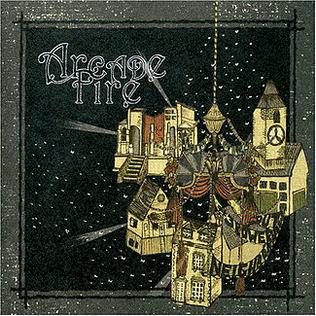
"Neighborhood #3 " is an indie rock song by Canadian rock band Arcade Fire. It was the third single released from the band's debut album, Funeral.
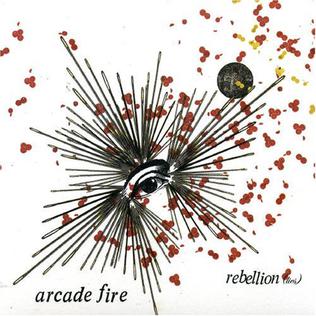
"Rebellion (Lies)" is a song by Canadian indie rock band Arcade Fire. It was the fourth single released from the band's debut album, Funeral. The single was released in both CD and DVD formats with the song "Brazil" as the B-side. The single peaked at number 19 on the UK singles chart, the band's best performance on this chart to date. On the album Funeral, "Rebellion (Lies)" immediately follows the song "Haiti", the ending of which has the same bass beat and leads right into the beginning of "Rebellion (Lies)". The song has enduringly been the band's closing song at appearances at music festivals and at the end of most of their shows. In October 2011, British pop singer Sophie Ellis-Bextor released a cover in support of Songs to Save a Life, a benefit project in aid of Samaritans.

Neon Bible is the second studio album by Canadian indie rock band Arcade Fire. It was first released on March 5, 2007, in Europe and a day later in North America by Merge Records. Originally announced on December 16, 2006, through the band's website, the majority of the album was recorded at a church the band bought and renovated in Farnham, Quebec. The album is the first to feature drummer Jeremy Gara, and the first to include violinist Sarah Neufeld among the band's core line-up.

"Wake Up" is an indie rock song by Canadian rock band Arcade Fire. It was the fifth and final single released from the band's debut album, Funeral. The single was released as a one-sided 7" vinyl record on November 14, 2005.
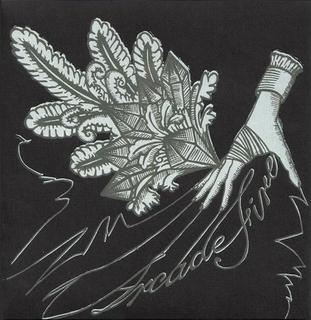
"Neighborhood #1 (Tunnels)" is a song by Canadian rock band Arcade Fire, and the first track on their debut album Funeral. It is the first of the four-part "Neighborhood" series found on Funeral. It was the band's first single, released several months before the album as a 7" vinyl record on June 20, 2004, to a pressing of 1500 copies. The B-side to the album is a recording of the song "My Buddy" by swing musician Alvino Rey. Rey is the maternal grandfather of Arcade Fire members Win and William Butler.

"Keep the Car Running" is a song by Canadian indie rock band Arcade Fire. It is the second single released from the band's second album, Neon Bible in the UK. This song was #22 on Rolling Stone's list of the 100 Best Songs of 2007. In October 2011, NME placed it at number 61 on its list "150 Best Tracks of the Past 15 Years".
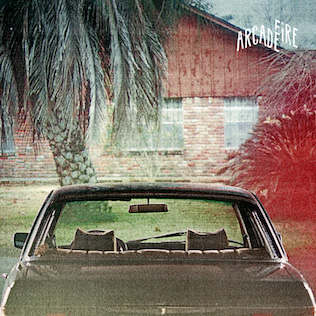
The Suburbs is the third studio album by Canadian indie rock band Arcade Fire, released on August 2, 2010. Coinciding with its announcement, the band released a limited edition 12-inch single containing the title track and "Month of May". The album debuted at No. 1 on the Irish Albums Chart, the UK Albums Chart, the US Billboard 200 chart, and the Canadian Albums Chart. It won Album of the Year at the 2011 Grammy Awards, Best International Album at the 2011 BRIT Awards, Album of the Year at the 2011 Juno Awards, and the 2011 Polaris Music Prize for best Canadian album. Two weeks after winning Grammy's Album of the Year, the album jumped from No. 52 to No. 12 on the Billboard 200, the album's highest ranking since August 2010.

Reflektor is the fourth studio album by Canadian indie rock band Arcade Fire, released on October 28, 2013, through Sonovox Records internationally and Merge Records in the United States. A double album, it was recorded between 2011 and 2013 at studios in Montreal, Jamaica, and Louisiana. It was co-produced by LCD Soundsystem frontman James Murphy, regular Arcade Fire producer Markus Dravs, and the band themselves.
Josh Deu is the co-founder of Canadian indie rock band Arcade Fire. He and Win Butler co-founded Arcade Fire in late 1999. Deu formally left the band in late 2003.

We is the sixth studio album by Canadian indie rock band Arcade Fire, released through Columbia Records on May 6, 2022. Produced by Nigel Godrich and band members Win Butler and Régine Chassagne, it was recorded in studios in New Orleans; in El Paso, Texas; and on Mount Desert Island in Maine. The album takes its name from the Russian dystopian novel We by Yevgeny Zamyatin. It was the final album by Arcade Fire to feature multi-instrumentalist Will Butler, who departed the band in 2022.


















